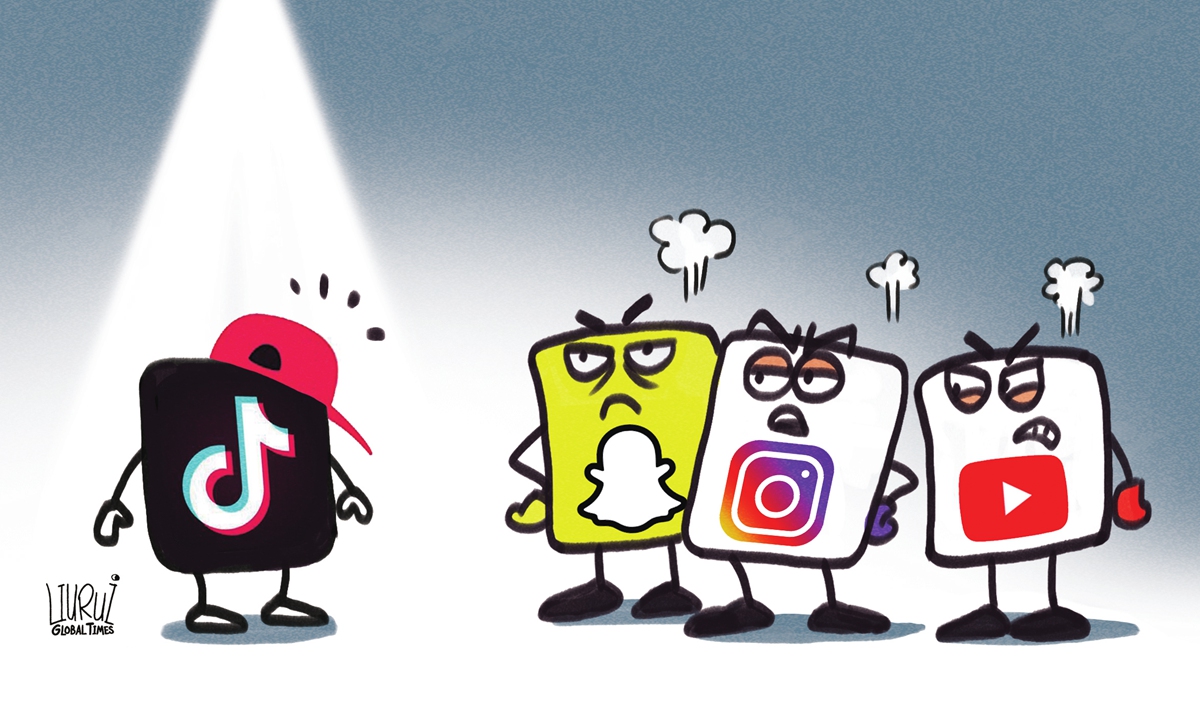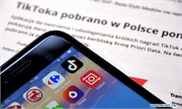
Illustration: Liu Rui/GT
It wasn't so long ago that TikTok was a harmless, if addictive, video-sharing phone application popular with nearly 1 billion users around the world, including more than 160 million in the US alone.And yet, seemingly overnight, it has now become a "national security threat" to the US, at least according to US Secretary of State Mike Pompeo, who recently mused that the Trump administration would "look into" banning the popular application in the country, claiming that it was a mechanism for the Chinese government to spy on Americans.
And although technology experts have said that TikTok has neither the capacity nor the interest to gather intelligence data on users to collect back to Beijing, the Trump administration is evidently using TikTok as yet another ad-hoc target in its three-year-long economic war against China.
But unlike other targets of American ire - such as alleged unfair trade practices - TikTok represents more than just economic growth; it represents growing Chinese soft power.
Buzzfeed News - one of the largest media outlets attracting millennial in the developed world - last year called TikTok "China's most important export," arguing that because it is widely known as Chinese technology, it has effectively been a boon to the image of China in the West.
The US is not targeting TikTok for what it can do. Rather, the app is being targeted for what it represents: a China that cannot be demonized nor used as a scare tactic, nor be seen as a menacing threat to the West.
TikTok - ironically now more than ever before thanks to the US public relations blitz against it - represents, for millions of young Westerners using the application, China's contribution to world popular culture.
Soft power, a term first popularized by Joseph Nye, a former official in the Bill Clinton White House, refers to one's ability to influence others with the use of persuasion and co-opting, rather than force or coercion. In the realm of international relations, it refers to the power of imagery, of movies, television and popular culture, instead of economic or military weight that a country can command. Because no matter how strong or powerful a country is, there is always a limit to its economic heft or military strength, but not to the influence it may be able to wield in the minds of people around the world.
And whereas China and the US are both large economic and military powers, currently only the US has a long-developed soft power structure: Hollywood, television and music have long been popular around the world. The impact of Hollywood movies has been significant.
While soft power has attracted less attention in the popular media, its power and significance has not been lost on global leaders. In 2011, China envisioned to develop into a cultural power. However, as of 2020, the US' popular culture remains the dominant, if not totally hegemonic, influencer in the world. But winning over hearts and minds is a long marathon, not a short sprint, and China needs to be thinking not weeks and months in the future, but rather years, decades and perhaps even further.
The lesson for China's leadership could not be clearer: Soft power is one of China's most underutilized assets, which can effectively tell the story of China and its people around the world, in contrast to the xenophobic images it is often given in Western capitals. Outside of China's economic growth, little is known about it in the Western world, and this ignorance is easily manipulated by any power which seeks to demonize and delegitimize China. It's much easier to paint a negative picture of China in Westerners' eyes when ignorance is so rampant.
TikTok is a threat to any country or power which relies on its people seeing China as an incorrigible enemy that needs containing. And in a time when the US' anti-China efforts are clearly far more than economic in scope, China needs to think creatively about how it can grow and exercise its soft power in the face of often hostile foreign powers. TikTok may be the latest threat from the US, but for China, it should represent tremendous promise and opportunity. Right now, global actors seeking to demonize China are portraying it in a negative light, and beyond combating these falsehoods, China must prioritize telling its own story to the world.
Robert Walker is an expert in international branding strategy, with a particular area of interest in China's image in the Western world. He holds a Bachelor of Journalism degree. opinion@globaltimes.com.cn


